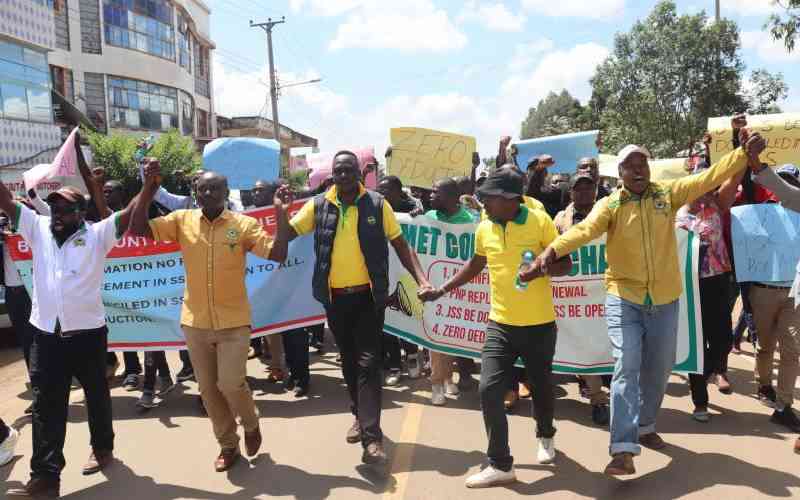×
The Standard e-Paper
Fearless, Trusted News

It is now emerging that a teacher who was not competent in a subject area taught in junior secondary school (JSS) for a whole year.
These details are contained in a labour dispute filed on behalf of the 30,550 JSS teachers hired by the Teachers Service Commission (TSC) as interns.